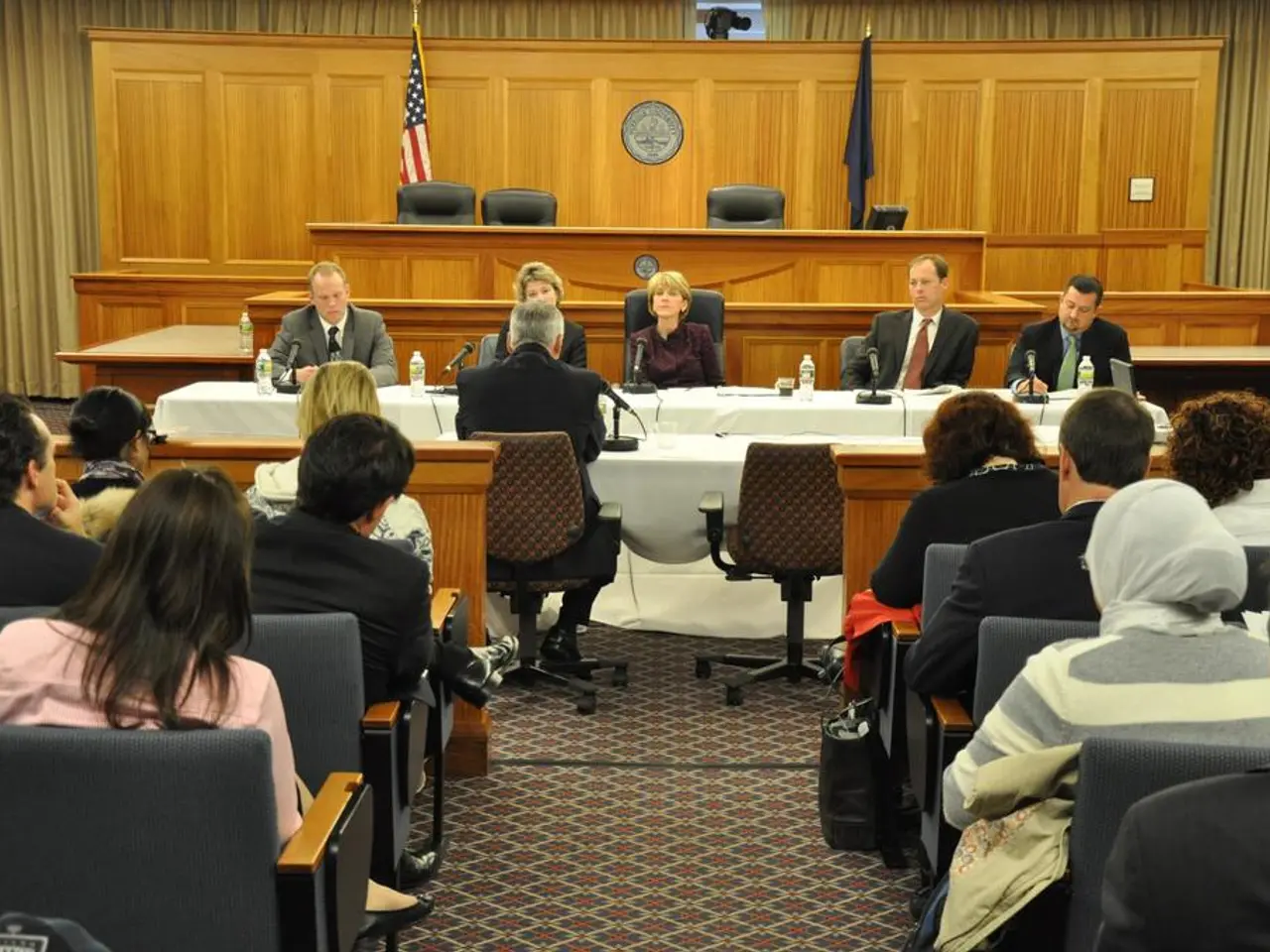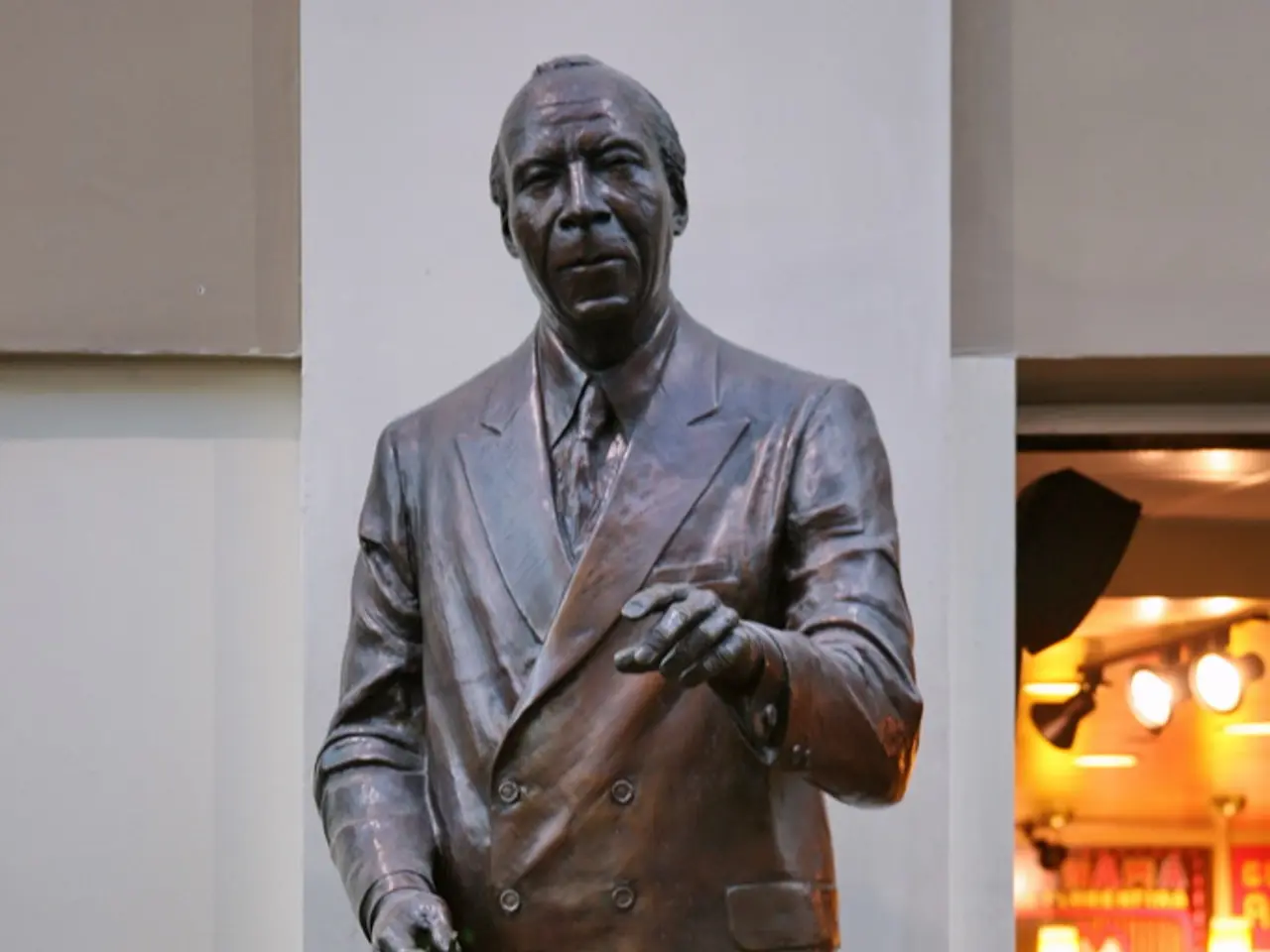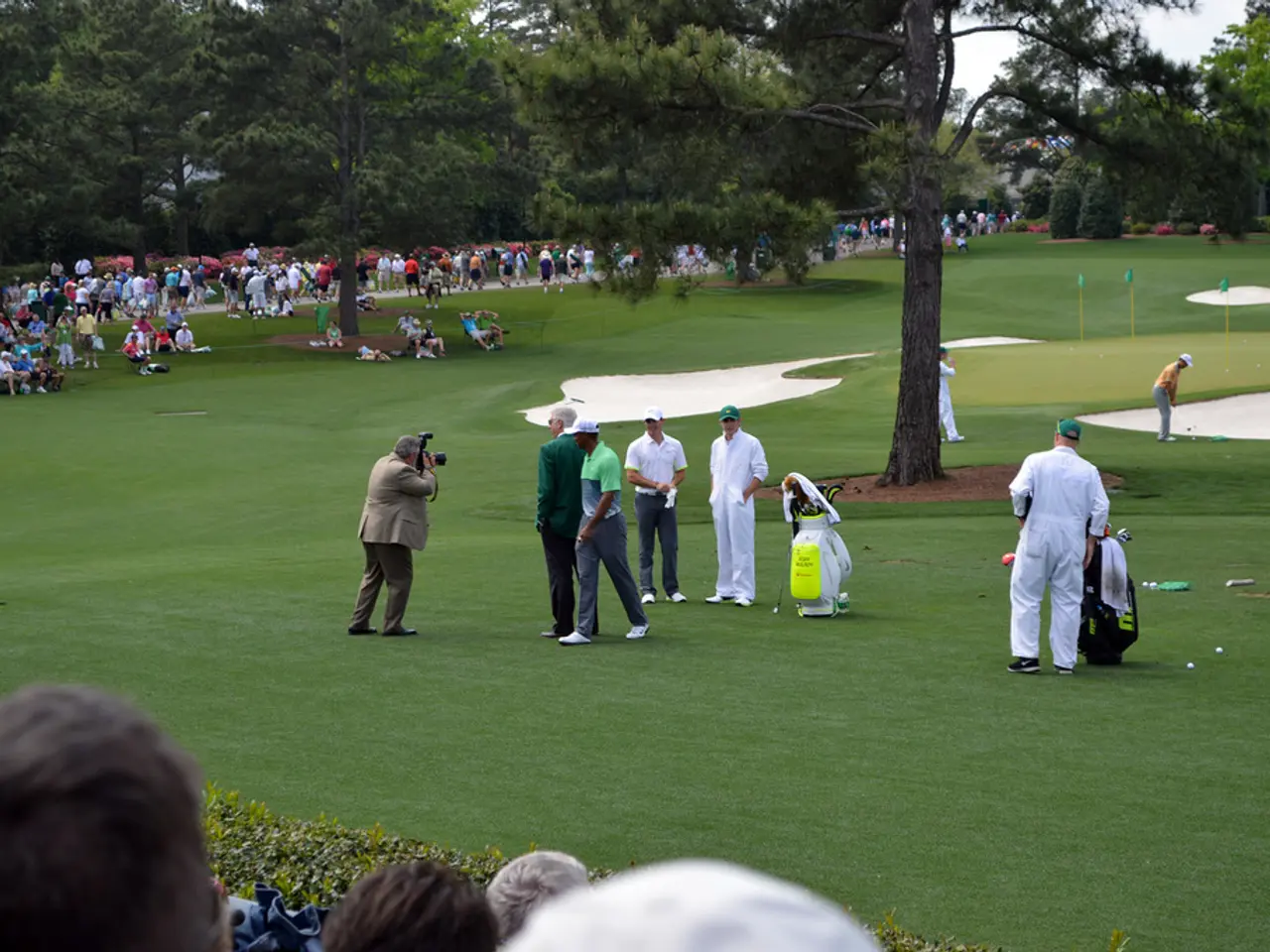Title: The "ParityNow" Movement Fights for Gender Equality in the German Bundestag
Exploration reveals factors behind scarce female presence in the German Parliament (Bundestag)
Promoting equality in politics is a hot topic, and the "ParityNow" alliance is jumping into the fray. The reason? The low female quota in the Bundestag, Germany's federal parliament. According to a recent study, financial disparities are the primary reason for this gender imbalance. Female candidates often struggle to raise money compared to their male counterparts.
The viral photo of six men sitting around a conference table at the Konrad-Adenauer-Haus symbolizes a larger issue: there are too few women in the Bundestag. The "ParityNow" initiative aims to change this, using a giant banner depicting that very photo during their action day in front of the Reichstag building. The message is clear: this is where women's heads should be.
The alliance, consisting of over 80 organizations, is advocating for a parity electoral system to ensure equal opportunities for female candidates and bring 50% women into the parliaments. Rita Süssmuth, a former President of the Bundestag and co-founder of "ParityNow," says, "Women have long since proven their talents and can shape the world."
Another politician, Friedrich Merz, previously stated that increasing women's representation in politics would solve itself if more women ran for offices. However, a recent study reveals a more complex picture: financial disadvantage plays a crucial role in the election process.
Raising money for a political campaign is a significant challenge. Up to 35,000 euros are required for running for office in Germany, covering costs for posters, flyers, events, and social media advertising. Despite support from their parties, women candidates often find it challenging to raise funds as effectively as men. This issue reduces their chances of being nominated for election and reinforces the gender imbalance.
Candidates' financial backgrounds can significantly impact their success, as local district associations decide how the election campaign financing is allocated. CDU female candidates, for instance, receive less financial assistance than male counterparts. These disparities, along with the other challenges women face in politics, such as navigating male-dominated structures and facing sexist attitudes, create barriers for female political representation.
The "ParityNow" movement seeks to break these barriers and build a future where women can compete equally in the political field. They hope to cultivate a more inclusive and diverse parliament that truly represents the German population.
Keywords:- "ParityNow"- Gender equality in politics- Financial disparities- German Bundestag- Women's representation- Female candidates- Political campaign financing
Sources:- [1] ntv.de- [2] World Economic Forum – Global Gender Gap Report- [3] OECD – Women in politics : dare to lead (2025)
- The "ParityNow" alliance, comprising over 80 organizations, is advocating for a parity electoral system in EC countries, aiming to fight the financial disparities that hinder female candidates and ensure the free movement of workers in politics, bringing 50% women into the parliaments for equal opportunities.
- Raising funds for a political campaign is a significant challenge in general-news, and females candidates often struggle throughout EC countries, as candidates' financial backgrounds can significantly impact their success, creating barriers for women's freedom to provide services in the political field, reinforcing the gender imbalance and reducing their chances of being nominated for election.





